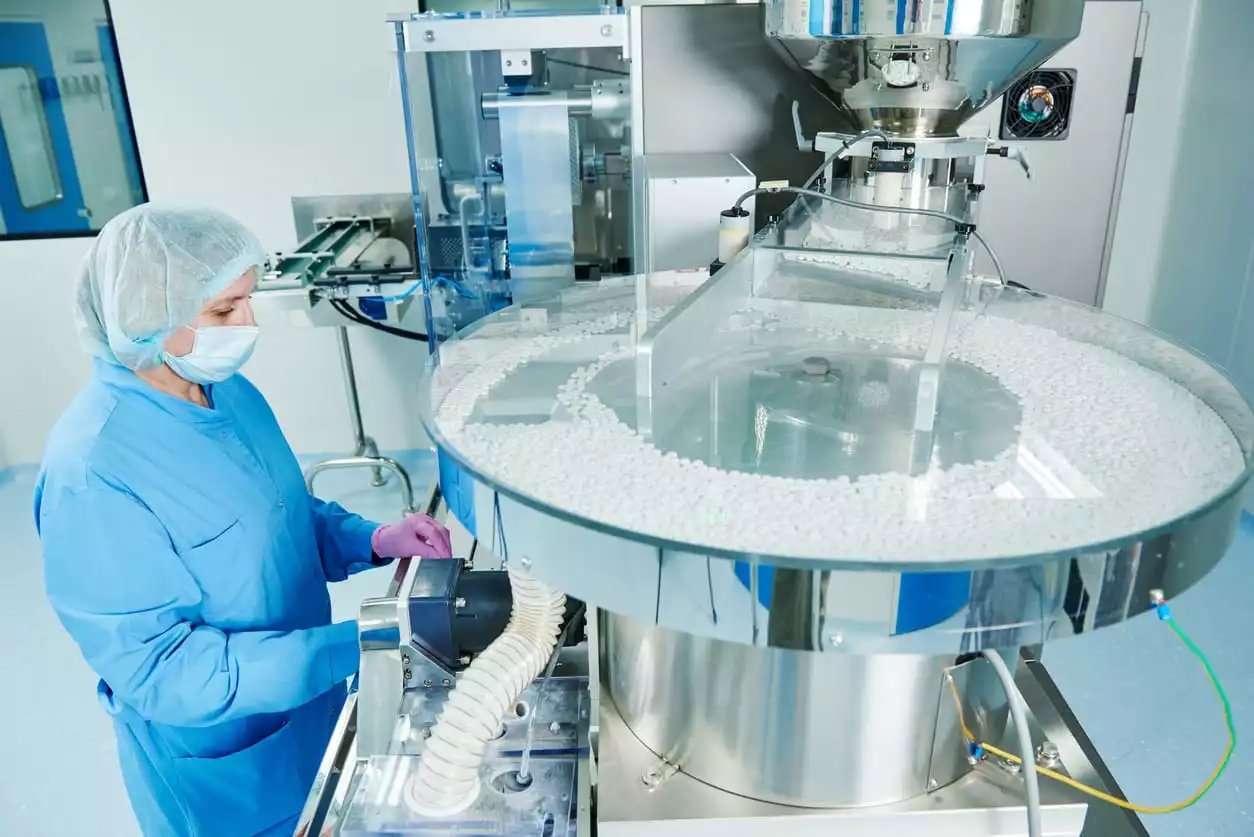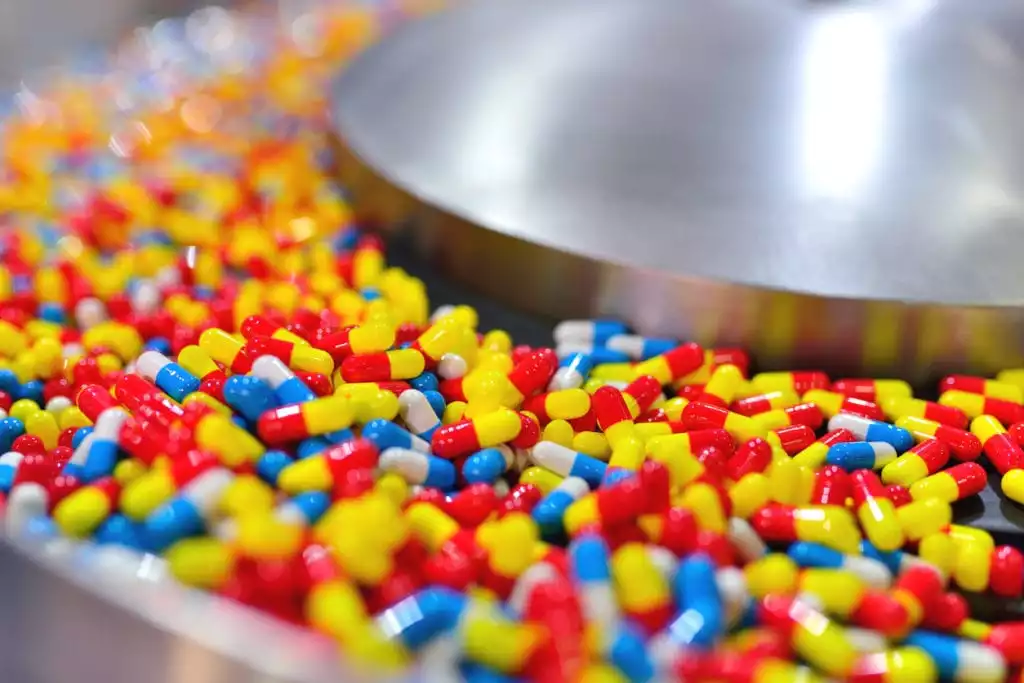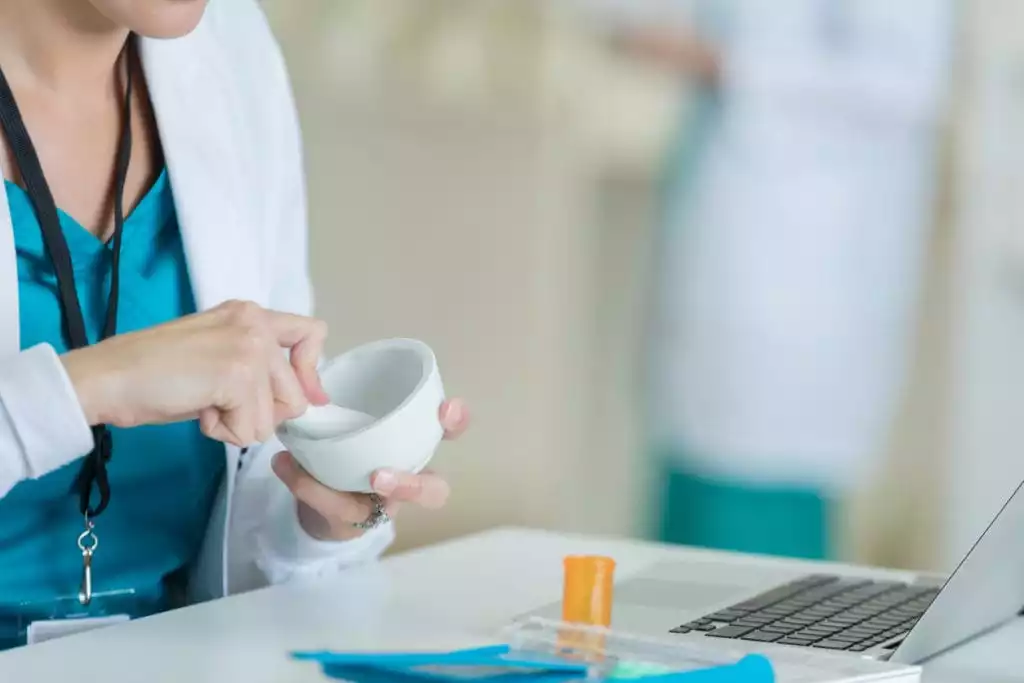
In the pharmacy, both compounding and pharmaceutical manufacturing touch every aspect of everything we do each day. Both processes focus on the creation and delivery of drugs to treat illnesses; without them, many modern medications wouldn’t be available or would only be available in limited formats. Patients with serious illnesses or complex health cases would essentially be left out in the cold or forced to use sub-par solutions.
But, what’s the difference between pharmaceutical compounding and pharmaceutical manufacturing? Here, we explore the similarities and differences between them.
Are They the Same?
Despite the fact that both compounding and pharmaceutical manufacturing share many similarities, the two processes are not the same. In fact, they share more differences they do similarities. Those differences can cause a significant amount of confusion for patients who are trying to find the best and safest medication with the fewest side effects.
Most pharmacists agree that both transparency and patient participation are vital aspects of healthcare. They believe patients should understand how their medication is made, where it comes from, how it benefits them, and what risks they may be taking when they use it. Understanding the difference between compounding and pharmaceutical manufacturing is an important part of that process. Because of this, we created this primer for patients to help you better understand.
Base Definitions
Before we get into the nuances and subtle differences between these two important facets of pharmacology, we have to understand their innate properties. We’ll start by defining exactly what compounding and pharmaceutical manufacturing are – the basics.
Compounding
Compounding is the process a compounding pharmacy uses to create custom medications from base ingredients for patients. Rather than simply counting out pills or providing the patient with a pre-mixed formula, the pharmacist starts with base drugs and combines or prepares them to best fit the patient’s needs. Because the compounding pharmacist works with base ingredients, he or she can adjust the dose by infinitesimally small ratios, rather than selecting the closest commercially available option.
Pharmaceutical Manufacturing
Pharmaceutical manufacturing is the process used to formulate and create commercially-available drugs. Unlike compounding, manufacturing creates drugs in pre-set formulas or doses on an industrial scale. Often, pharmaceutical manufacturing companies generate millions of doses or formulas per year. The large scale benefits society by providing quick and easy access to pre-formulated medications, but leaves little room for customization when patients have special needs.
The History
Before the creation of the Food and Drug Administration (FDA), and certainly before the industrial revolution, compounding was the only method used to create patient medications. Often referred to as an apothecary, historical “pharmacists” would assess patients and take recommendations from physicians. They then return to the apothecary laboratory to hand-create each formula to the patient’s needs. This often included growing herbs or plants, crushing or extracting drugs, and combining base ingredients to produce various formulas. Many of the substances and drugs used came directly from herbs and plants.
Although it may seem logical to assume an apothecary worker was an “apothecist,” most apothecary workers were actually practicing physicians themselves. If you were a patient who was sick or in need of medication, and you did not have a physician, you visited the apothecary. He would very often assess, diagnose, and prescribe medications all at once.
Today’s focus on compounding is a resurgence of respect for the ancient apothecary in many ways. This growing trend recognizes the broad wealth of knowledge pharmacists have on healthcare and pharmacological treatment methods.
Legal Differences
Pharmaceutical manufacturing and compounding also differ greatly legally. Compounding pharmacies and manufacturing companies are each held to their own individual set of guidelines. Often, compounding pharmacies have more legal freedom.
Both compounding pharmacies and pharmaceutical manufacturing companies must adhere to oversight from governing bodies. However, pharmaceutical manufacturing companies are overseen by the Food and Drug Administration (FDA) and the Drug Enforcement Administration (DEA); compounding pharmacies fall under the oversight of state pharmacy licensing boards instead. This difference is laid out under section 503A of the FDCA.
In “plain English,” this means that the substances, doses, and formulas compounding pharmacies use are technically not FDA-approved. However, this is more of an issue of practicality rather than unreliability. The FDA tends to approve drugs in very specific formats or doses; compounding pharmacies change these formats to better suit the patient’s needs.
The fact that many compounding pharmacies lack FDA approval does not mean that they are inherently unreliable or untrustworthy. Without exemptions from FDA approval, which can often take five to 10 years for a single commercially available drug, compounding pharmacies would be virtually unable to address custom medication needs. Exemptions allow compounders to quickly create safe and reliable solutions for patients with allergies, drug sensitivities, and delicate health conditions.
Are Compounded Medications Safe?
When people first hear that compounded medications are not FDA-approved, they often grow concerned about the safety of these custom medications. As mentioned above, registered and licensed compounding pharmacies do have oversight from state pharmacy licensing boards. These regulations ensure that the compounding pharmacy is working with safe substances using reliable methods and empirical evidence for every medication they create. Provided that you work with a licensed pharmacy, your medications should be safe and reliable.
Medications, when broken down to their base ingredients, are all virtually identical from a chemical perspective. Compounding pharmacies often source their base ingredients from the same pharmaceutical manufacturing companies that make commercial drugs. The only difference is that the compounding pharmacy processes or combines them in-house, rather than simply receiving a pill, injection, topical, or pre-combined formula in a box or bottle.
It is important to note that compounded medications are only as safe as traditional medications when used correctly for the right conditions. Like any other form of pharmacological treatment, not every medicine is right for every patient. Having a working relationship with your pharmacist and taking an active part in your health is the best way to ensure you find a safe and reliable treatment.
Do I Need a Prescription for Compounded Medications?
Compounding pharmacists have extensive freedom, but they cannot simply give a compounded medication without evidence of need. Legal and ethical regulations prevent pharmacists from simply handing out drugs unless they can confirm this need, but that doesn’t necessarily mean you always need a prescription. In some cases, a physician’s prescription is needed; in others, the pharmacist’s “prescription” of a treatment may be enough.
For example, if someone walks in off the street and requests a compounded opiate pain medication, they would still require a prescription because opiates are a controlled substance. Unlike other compounding solutions, controlled substances do fall under DEA and FDA regulations and are tightly controlled.
Conversely, if a patient requested bioidentical hormones for a thyroid condition, a prescription may not be needed. However, the pharmacist would need more information about their condition before they can prescribe. The pharmacist can gather information through blood testing, saliva testing, and other hormone monitoring methods to judge the patient’s exact condition. With evidence, he or she can create and “prescribe” bioidentical hormones right from the pharmacy.
Whether or not the medication you need compounded requires a physician’s prescription depends on what the medication contains. The best way to verify is to speak with your pharmacist about your healthcare situation in person. He or she can identify opportunities and work with you to find the very best solution for your
needs.

 info@burtsrx.com
info@burtsrx.com


Very usefull words ….as a pharmacist I support this
I understand compounding pharmacies are very important to veterinarians. My vet had to contact a compounding pharmacy for medication for my cat suffering hyperthyroidism. Without this medication my cat would have suffered inevitable early death . I am extremely thankful that such a facility was available in my area!
We agree, Alive! And some people don’t even know that it’s an option! We’re glad that your cat is doing better!
I really understand what is compounding pharmacy and manufacturer pharmacy thank you I’m really appreciate my dear
Why doesn’t competition from compounding pharmacies force Big Pharma to lower drug prices?